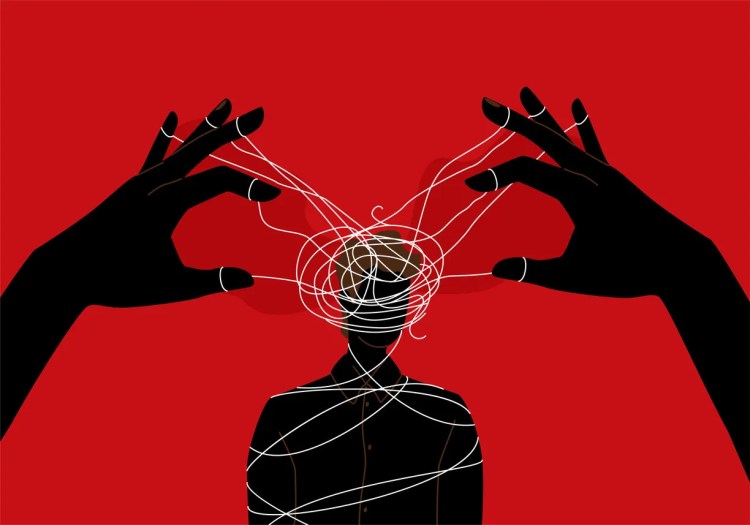South Australia is introducing new laws to combat coercive control – the psychological abuse that traps victims in fear and isolation. Find out more about these new laws – and why they’re so necessary.
As Director of the Office for Women, Dr Sanjugta Vas Dev, says, the new coercive control legislation, introduced to State Parliament in August, is a necessary shift in how we understand domestic violence.
“This bill is very, very important, because it’s a significant step for South Australia to recognise the seriousness and the profound damage and harm that coercive control can cause in relationships, but also to the community,” she says.
“Historically, when we think about domestic violence, it’s often understood as physical violence, sometimes sexual violence, and as single acts of violence where a woman has been hurt,” she says.
“I think now… we know that violence in intimate partner relationships can include emotional abuse and harassment and controlling behaviours that take place over time.”

What is coercive control?
Coercive control refers to a pattern of behaviour where a perpetrator intentionally tries to dominate their victim through fear, manipulation and isolation. It can manifest in many ways, from controlling finances to dictating what someone wears or who they see. Dr Vas Dev says every case is different.
“It’s really been overlooked because it’s really insidious, and in some ways it’s quite invisible, because it’s not physical,” Dr Vas Dev says. “It’s not necessarily a woman with a black eye, it’s psychological and it’s spiritual, but it’s just as damaging, if not more.”
Examples of coercive control can include:
- Isolating someone from their friends or family
- Monitoring their movements or online activity
- Controlling their finances or access to basic necessities.
Know the signs: Your guide to coercive control red flags

The legal gap
Currently, South Australia’s laws don’t fully address the non-physical forms of abuse that coercive control involves, which is why this bill is so significant. The Criminal Law Consolidation (Coercive Control) Amendment Bill 2024 will fill this gap by recognising a pattern of controlling behaviour as a criminal offence.
The law will focus on the perpetrator’s intent to control rather than individual acts of abuse. It will impose a maximum penalty of seven years in prison for convicted offenders.
A law informed by victim-survivors
The State Government is committed to criminalising coercive control. To make sure this new legislation would be helpful to all South Australians, “the drafting of the bill has been very much informed by consultation with different communities,” says Dr Vas Dev.
“The Office for Women has worked with the Attorney General’s Department over the last few years and initiated important discussions with First Nations women asking them what they want to see in this draft legislation.”
“We’ve also had important conversations with the LGBTQIA+ community, with women of multicultural communities and with the disability communities, because we know that coercive control can also look different in different communities.”

Why is this law important?
“The Bill is important because it raises awareness about how damaging and how serious this type of abuse actually is,” says Dr Vas Dev. “It’s about increasing our understanding as a community that domestic violence isn’t always physical.”
“Also, research tells us that coercive control is present in 99 per cent of domestic violence-related homicides, so we must criminalise this form of behaviour as a preventative measure against intimate partner homicide.”
“This legislation is a very important preventative measure.”
Public awareness
Dr Vas Dev says because coercive control is often difficult to detect, public education is critical. She says community awareness campaigns have played a key part in the lead-up to the new legislation.
“The Office for Women has led the See the Signs campaign, which has had a great response on TikTok and Snapchat. The campaign was created to strengthen awareness about what coercive control is and also reinforce some of the services and supports that are available to victims of coercive control and other forms of abuse. We must do more.”
Implementation and training
The Government is taking steps to prepare for the proposed new law’s enforcement well before it comes into effect, Dr Vas Dev says.
“The Bill is very important in itself, but the way that it’s implemented, and that includes the way that the different Government agencies and non-government organisations understand it and are trained and able to respond to the community when it comes into effect, is going to be more important,” she says.
“So we’ve got to make sure that all parts of the system, including the police, including the justice system, including the health system and education system, really understand that coercive control is not just bad, it will be illegal and it causes so much damage at so many levels.”
Do you need help?
If you are experiencing coercive control or other forms of domestic or family violence, you can contact the SA Domestic Violence Crisis Line on 1800 800 098. You can also contact 1800RESPECT on 1800 737 732 for 24-hour support.
If you’re worried you may be using coercive control against someone you love, you can contact the Men’s Referral Service on 1300 766 491.

















